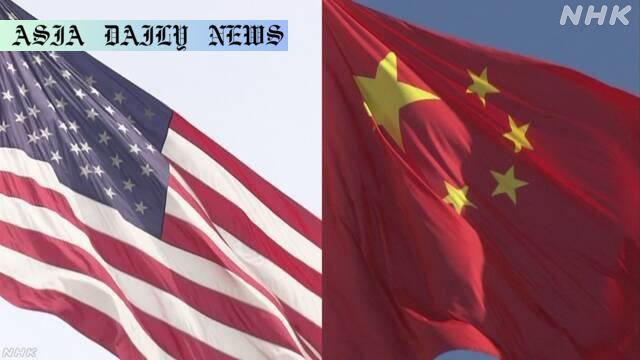Tariffs: The United States and China pause additional tariffs on imports for 90 days after productive trade talks in Switzerland.
- The United States and China mutually decide to pause additional tariffs for 90 days.
- The agreement follows productive discussions during trade talks in Switzerland.
- This move is expected to mitigate escalating trade tensions between the two nations.

Understanding the 90-Day Tariff Pause
The recent announcement by the United States and China regarding their decision to pause additional tariffs for 90 days marks a significant move amidst a fraught trade relationship. This agreement, reached during trade talks in Switzerland, reflects a shared interest in alleviating the strain on global trade that has been exacerbated by ongoing tariff disputes. The measure, although temporary, highlights the potential for constructive dialogue between these economic giants.
For years, escalating tariffs between the U.S. and China have disrupted supply chains, increased costs for manufacturers and consumers, and created market volatility worldwide. By agreeing to this temporary ceasefire, both nations signal their intent to stabilize their economic relationship and potentially explore long-term solutions to their trade grievances.
Economic Impact of the Pause
The 90-day suspension of additional tariffs is expected to bring temporary relief to industries heavily dependent on imports from either country. In the U.S., sectors such as technology, retail, and agriculture are poised to benefit from reduced tariff pressures. Similarly, Chinese industries may experience a reduction in import costs, helping to stabilize domestic markets.
This agreement may also positively impact global markets. Investors and businesses often react to such developments with increased optimism, as it reduces the unpredictability associated with trade battles. While the pause provides temporary respite, many industries remain cautious about a lasting resolution and what it may entail for future trade relations.
The Path Ahead for U.S.-China Trade Relations
While the 90-day truce represents progress, it is by no means a resolution to the broader economic issues between the two nations. The trade war, rooted in concerns over intellectual property rights, trade imbalances, and market access, requires substantial negotiation and compromise. Both governments must approach subsequent discussions with clarity and a willingness to address mutual concerns effectively. Failure to do so may result in a return to escalatory measures and further challenges for global economies.
It is critical to consider this pause as an opportunity for both countries to reassess their strategies and work towards a path of economic cooperation. Clear communication and a focus on shared benefits could lay the groundwork for a more enduring resolution that promotes global economic stability.
Conclusion: A Step in the Right Direction
The suspension of additional tariffs by the United States and China for 90 days stands as a hopeful sign in their ongoing trade dispute. Although temporary, it reflects a willingness to engage in dialogue and ease international trade tensions. This decision provides an opening to negotiate long-term solutions, but meaningful progress will require sustained political and economic commitment from both sides.



Commentary
A Welcome Development Amidst Economic Tensions
The decision by the United States and China to pause additional tariffs for 90 days is undoubtedly a welcomed development. In an era defined by economic uncertainties and geopolitical disputes, such announcements offer a glimmer of hope for industries, consumers, and economies worldwide. This move demonstrates that even amidst stark disagreements, both nations recognize the importance of maintaining a semblance of economic stability.
Temporary Relief, But Challenges Remain
While the 90-day tariff suspension is promising, its temporary nature raises questions about its long-term impact. Businesses and investors, while welcoming the truce, remain on edge regarding its resolution. Economic policies, particularly those involving powerhouses like the U.S. and China, require consistency and predictability. Until clearer agreements are established, the uncertainty surrounding these discussions will persist.
The Importance of Continued Dialogue
One cannot overstate the significance of dialogue in resolving such critical issues. Trade disputes, especially those concerning intellectual property, market access, and trade balances, are complex and require sustained engagement. The 90-day pause is a step in the right direction, but it must be followed by transparent negotiations that prioritize mutual benefits over unilateral gains.
Broader Implications for Global Trade
The ripple effects of U.S.-China trade tensions are felt globally, impacting not just the two nations but the entire world economy. As influential players on the global stage, their actions significantly shape trade policies, market dynamics, and economic trends. A resolution to their disputes could serve as a stabilizing force, providing much-needed certainty in an unpredictable global economy.
Final Thoughts
The 90-day tariff pause between the United States and China is a promising step, but it is merely the beginning. Both nations must seize this opportunity to engage in meaningful discussions and work towards sustainable solutions. For the sake of global economic stability and progress, cooperation between these two giants is essential.